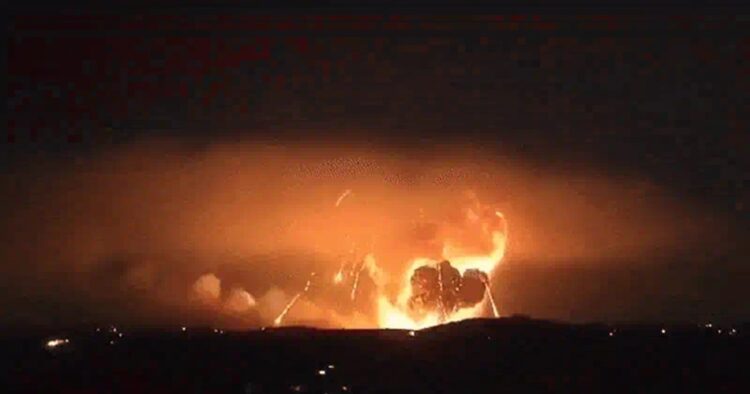On late Sunday, Israel launched a series of airstrikes in Syria’s coastal Tartus region, marking the most intense bombardment in the area since 2012, according to the media reports. The strikes targeted key military installations, including air defence units and a surface-to-surface missile warehouse, leading to multiple large explosions, some of which were captured on video.
The Syrian Observatory confirmed that the strikes severely damaged the base of the 23rd Air Defence Brigade, along with nearby facilities used for storing advanced weaponry. The heaviest strikes in Syria’s coastal region since the start of strikes in 2012. Israel has consistently carried out airstrikes in Syria, primarily to prevent the transfer of advanced weaponry to groups like Hezbollah, which are seen as hostile to Israeli security.
Prime Minister Benjamin Netanyahu confirmed that the airstrikes were aimed at neutralizing security threats and ensuring stability along Israel’s northern border. “We have no interest in a conflict with Syria,” Netanyahu said. “Our actions are focused on thwarting potential threats from Syria and preventing terrorist elements from taking control near our border.”
The explosion at the ammunition depot in Tartus was so powerful that it registered on a magnetometer station in Iznik, Turkey, 820 kilometers away, according to a post on social media by an independent researcher. Richard Cordaro, an expert in regional security, further noted that the explosion was significant enough to be detected on the Richter scale.Syria’s response to the strikes was swift.
Ahmad al-Sharaa, the leader of Hayat Tahrir al-Sham (HTS) and the de facto ruler of Syria following the ousting of President Bashar al-Assad, condemned the Israeli airstrikes as “unprovoked aggression.” However, al-Sharaa added that Syria remained focused on reconstruction and was keen to avoid further military confrontations.

















Comments